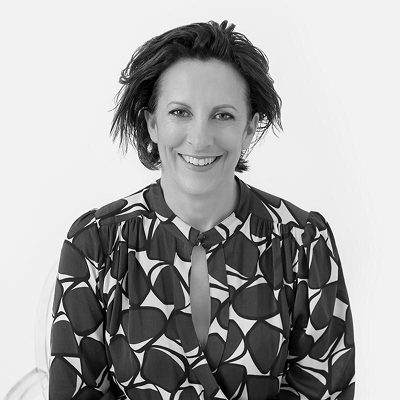
ASKING FOR A FRIEND
How do I build up the courage to talk about my mental health with someone at work?
ASKING FOR A FRIEND - QUESTION
Talking about mental health at work requires courage, but it's getting easier as workplace attitudes shift. Martine Beaumont, psychotherapist and CEO of Select Wellness, Nicky Bryson, founder of The Trenches mentoring program, and Andy Wright, CEO of Streamtime and Never Not Creative founder, share practical advice on how to get up the courage to talk to someone at work about your mental health. They explore overcoming self-shame, recognising supportive workplace climates, and choosing the right moment for these important conversations. The discussion reveals how leadership behaviour sets the tone and why speaking up can create stronger, more authentic working relationships for everyone.
Talking about mental health at work can feel daunting, even when you know it's the right thing to do. You might worry about being judged, appearing weak, or affecting your career prospects. These concerns are completely understandable, but they don't have to hold you back from getting the support you need.
The good news is that workplace attitudes towards mental health have shifted dramatically. More people than ever are open to these conversations, and many workplaces actively encourage them. The challenge isn't usually finding someone who will listen, it's finding the courage to speak up in the first place.
This question was answered by Martine Beaumont, founder and CEO of Select Wellness with over 30 years of experience as a psychotherapist and executive coach supporting workplace wellbeing, Nicky Bryson, Principal and Co-founder of Sayers Brand Momentum and founder of The Trenches mentoring program, and Andy Wright, Host and CEO of Streamtime, founder of Never Not Creative and co-chair of the Mentally-Healthy Change Group.
Start With Self-Acceptance
The biggest barrier to talking about mental health at work often isn't other people's attitudes, it's your own. As Martine explains: "It's being okay with yourself to begin with, accepting it as a part of you and not shaming it. It's the shame that you carry about it yourself that stops you from sharing it with others generally."
This shame is completely misplaced. "Would you be shamed about breaking your finger?" Martine asks. Of course not. Mental health challenges deserve the same matter-of-fact approach as physical injuries. Yet many of us still carry around the feeling that struggling mentally somehow makes us less capable or healthy than others.
The truth is quite the opposite. "If you get a good dose of anxiety when you're young you learn the most amazing tools that'll serve you for life," Martine notes. "If you do happen to suffer from depression, there's so many benefits as far as your level of compassion for others, your understanding, your ability to think deeply with introspection."
Recognise the Changing Workplace Climate
The workplace conversation around mental health has transformed, particularly since COVID-19. Andy's research shows that "the intentions of leadership have improved. Everyone is trying to improve their empathy muscle internally and it's appreciated a lot more."
This shift means you're likely entering a more supportive environment than you might expect. As Nicky points out: "We're just lucky that we're also at this point in time where it is acceptable and it can be talked about, so it's advantageous to do so."
Half of people in the creative industry now say they'd welcome colleagues talking about mental health. The stigma is lifting, even if it doesn't always feel that way when you're the one considering speaking up.
Look for Leadership Cues
The tone often comes from the top. "If you've got a leader who's really open with it, the whole team all of a sudden is," Andy observes. Pay attention to how your managers and senior colleagues approach these topics. Do they mention taking mental health days? Are they open about their own challenges or those of their family members?
Leadership behaviour sets the standard for the whole team. "I think it's important for leaders to take time if they have mental health days because if you see a boss working through their cold you're going to work through your cold," Nicky explains. The same principle applies to mental health.
Choose Your Moment and Person
You don't need to announce your mental health status to the entire office. Start with one trusted person, whether that's your direct manager, HR, or a colleague you feel comfortable with. The key is finding someone who has shown empathy and understanding in other situations.
Consider the practical aspects too. Choose a time when you won't be interrupted and when the other person can give you their full attention. This isn't a conversation for a busy corridor or a rushed coffee break.
Frame It Practically
You don't need to share every detail of your mental health journey. Focus on what's relevant to your work and what support you might need. This could be as simple as: "I'm going through a challenging time with my mental health and wanted to let you know in case it affects my work" or "I'm managing anxiety and sometimes need to step away from high-pressure situations for a few minutes."
Remember the Benefits
Opening up about mental health at work isn't just about getting support, it's about creating space for authenticity. When you're honest about your challenges, you often discover you're not alone. Others may share their own experiences, creating stronger, more genuine working relationships.
Research shows that what people want most to improve their mental wellbeing at work is support. By speaking up, you're not just helping yourself, you're potentially helping create a more supportive environment for everyone.
Find Your Community Through NNC Circles
Sometimes the courage to speak up at work comes from first finding your voice in a safe, supportive environment. Never Not Creative Circles are peer support groups specifically designed for creatives facing mental health challenges. These monthly sessions connect you with 8-10 other creatives in a confidential, non-competitive space where you can share experiences and learn practical coping strategies.
Being part of a Circle can help you practice talking about mental health in a supportive environment, building the confidence you need to have these conversations at work. The program includes mental health education and action planning, giving you both the language and the tools to discuss your wellbeing more effectively. Learn more about NNC Circles.
When Professional Support is Needed
If your mental health challenges feel overwhelming or are significantly impacting your work and daily life, it's important to seek professional help alongside workplace support. A qualified mental health professional can provide specialised treatment and coping strategies that go beyond what workplace conversations can offer.
Don't hesitate to reach out for professional support if you're experiencing persistent symptoms, thoughts of self-harm, or if your mental health is affecting your ability to function. Find professional help resources here.
Know Your Rights and Options
If you're facing workplace issues that are affecting your mental health, such as bullying, harassment, or unfair treatment, you have options. Never Not Creative's Support Line provides free initial legal advice for creative industry workers dealing with workplace mistreatment.
This confidential service can help you understand your rights and explore your options if workplace issues are contributing to your mental health challenges. Sometimes addressing the root cause of workplace stress is just as important as talking about its effects. Access the Support Line here.
You're Not Alone in This
Finding the courage to talk about mental health at work starts with accepting that it's a normal part of the human experience. You're not broken, weak, or unprofessional for struggling sometimes. You're human, and humans occasionally need support.
The creative industry is slowly but surely becoming more understanding of mental health challenges. By speaking up, you're not just helping yourself, you're contributing to a culture where everyone can bring their whole selves to work. That takes courage, but it's courage that's increasingly being rewarded with understanding, support, and genuine connection.
our guests
Industry Leader

Nicky Bryson
Telstra
Mental Health Expert

Martine Beaumont
Select Wellness
Host

